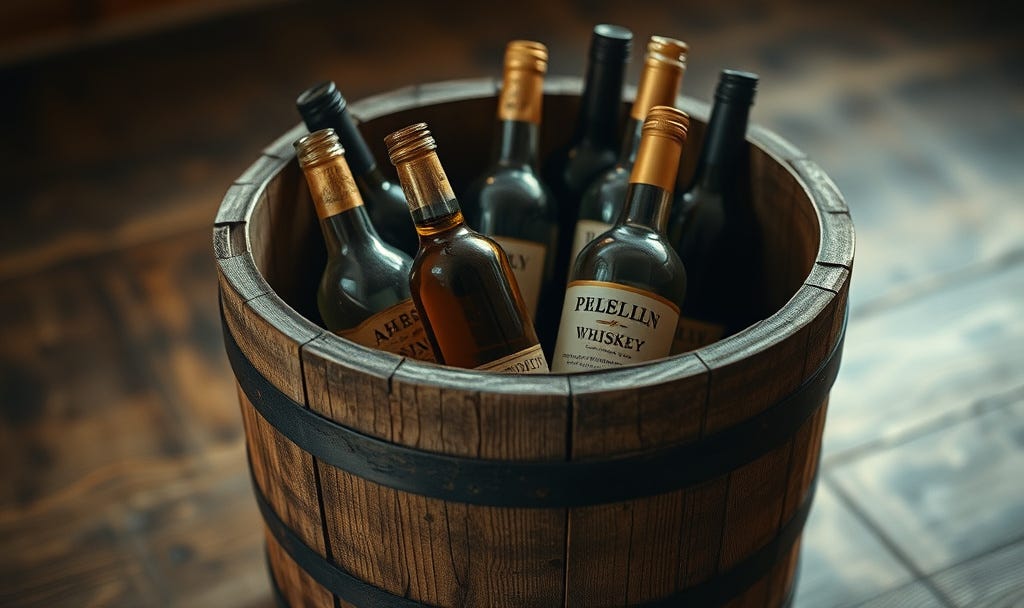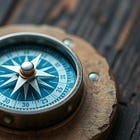How to Quit Alcohol: A Step-by-Step Guide
A practical guide to stopping completely and building a sober life
Quitting alcohol can feel impossible when it's been a long-time companion. Even knowing the well-documented health risks, many people struggle to stop because alcohol affects not just your body, but your entire social life.
Here’s how I approached it and what worked.
Make It Your Own Decision
Quitting alcohol only works if it comes from you. If you try to quit because it’s trendy, someone else expects it, or you feel pressured, the chances of slipping are high. The first moment you’re alone without support, you might drink again.
Be honest with yourself. Ask: Do I truly want to quit? Am I ready to change my habits? If your answer isn’t firm yet, don’t force it. Start by reflecting on your reasons and thinking about the life you want without alcohol.
Tips:
Make quitting your personal choice, not anyone else’s.
Identify your motivations: health, clarity, relationships, or freedom.
Recognize your doubts and give yourself time to grow your willpower.
Learn About Alcohol in Detail
Once your decision is your own, strengthen it with knowledge. Understanding how alcohol affects your body and mind makes your choice more solid and easier to stick to.
Focus on the facts: how alcohol impacts health, sleep, weight, energy, mood, and mental clarity. Look at both short-term and long-term effects, and read about the benefits people experience when they quit.
Tips:
Use neutral, science-based sources for accurate information.
Track your own habits and notice patterns or triggers.
Compare your current lifestyle with what life could be like without alcohol.
Quit Completely, Not Gradually
Based on my experience and observation, I don't recommend trying to reduce alcohol gradually, though I recognize different approaches work for different people.
For me, cutting down seemed easier at first, but it was very easy to slip back into old habits. Two drinks quickly turned into three when I was out with friends or on vacation. The constant decision-making about "how much is okay today" created mental fatigue.
Committing to quitting completely gave me clarity - it removed the daily negotiation with myself and allowed my body and mind to reset faster.
Tips:
Consider what approach feels most sustainable for your situation.
Remind yourself daily why you decided to quit.
Treat slip-ups as learning experiences, not failures.
Important note: If you have severe alcohol dependence, please consult a healthcare professional about withdrawal, as sudden cessation can be dangerous in some cases.
Quick favor: If this resonates with you, I’d be grateful if you subscribed to Running Home. I share more stories like this about growth, awareness, and the messy journey back to yourself. It’s free, and it helps me keep writing honestly. Thank you. — David
Test Your New Life
Before committing fully, try short test periods — one day, a weekend, or a week — without alcohol. Go to social events or nights out and practice staying sober.
Use this time to reflect on how it feels and what you learn about yourself. Were there situations that felt especially difficult? How did it feel to answer the question “Why don’t you drink?” Did you feel pressured, or was it easier than you expected? Multiple test runs can help you prepare before you quit completely.
Tips:
Plan short trial runs without alcohol (a weekend, a week, a month).
Go to events or social situations and stay sober intentionally.
Reflect on your experience before committing fully.
Identify Risky Situations
At the beginning of your new life, you’ll find yourself in many situations where you used to drink. Think about those moments and make a list. It might be after work, dinner with friends, Sundays at your parents’, watching sports, or social nights with colleagues. Prepare yourself by reminding yourself why you quit before entering these situations.
Tips:
List your triggers and risky situations.
Mentally rehearse how to handle these moments.
Plan alternative activities or responses to stay engaged without alcohol.
Remove Alcohol from Home
If possible, remove all alcohol from your home. It might not work if you live with someone who still drinks, but if you can, clear it out. You could give it away, but that might draw attention and raise questions you don’t want to answer. In that case, pouring it out is best.
I did this myself — pouring out my wines, scotches, and vodkas one by one. It took time, and the smell was a wake-up call that strengthened my decision. With no alcohol at home, the risk of giving in during weak moments is much lower.
Tips:
Remove all alcohol from home if possible.
Clear out accessories like cocktail tools or fancy glasses that remind you of drinking.
Restock your home with non-alcoholic drinks you enjoy, so you always have alternatives ready.
Don’t Broadcast Your Goal
Many people expect too much support from others. Announcing you’re quitting often creates resistance and social pressure. You don’t want to answer “Why don’t you drink?” a thousand times or listen to monologues about living life to the fullest.
Instead, quietly stick to your plan. If someone asks, say it’s a phase or that you want to be fit for tomorrow. You don’t have to lie, but you can spare yourself the constant explanations. This also allows others to adjust to your new behavior gradually.
Tips:
Avoid announcing your goal to everyone.
Use simple answers like “I’m getting up early” or “Not today” if asked.
If you share, frame it as a temporary phase to reduce pressure.
Find Alternatives
Even if you quit alcohol, you might still want a drink in hand. Find alternatives you enjoy. I sometimes drink non-alcoholic beer, Coke Zero, water with lemon, or tea. The more you explore, the more you realize how many enjoyable drinks don’t contain alcohol.
Tips:
Experiment with non-alcoholic drinks until you find what you like.
Keep replacements on hand to satisfy the ritual of drinking.
Some ideas: sparkling water, herbal teas, non-alcoholic beer or wine, kombucha, fresh fruit juice, vegetable juice, mocktails, coconut water, ginger beer, soda water with bitters, matcha.
Quitting alcohol is a challenge, but if you commit and follow the steps above, you can change your life for good. At some point, you’ll ask yourself the same question everyone who quit once did: Why did I wait so long?
And one more thought I always carried with me:
I never regret not drinking, but I regret drinking many times.
Stay sober.
Thanks for sticking with me through this one. If you’re going through something similar, or have your own experience with this, drop a comment. I read every one. — David
Read More:






Great break down pal 🙏